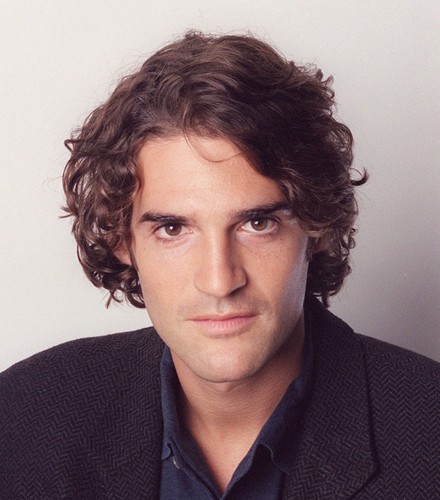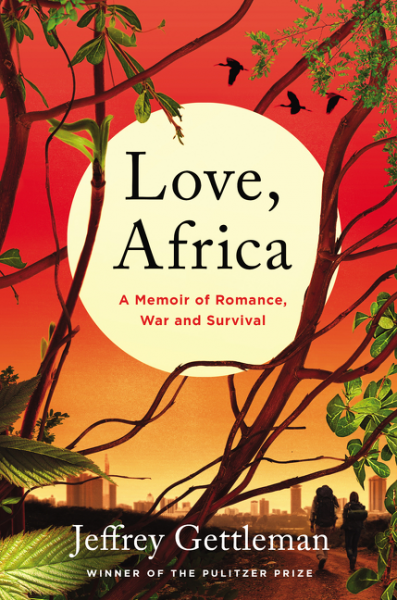Sign up for The Media Today, CJR’s daily newsletter.
Several years ago, when I was an intern at the Associated Press in Egypt, I emailed one of the more seasoned foreign correspondents in the country to ask for career advice. Naturally, I attached my resume. The email I got back was not very exciting from a professional standpoint, but it did contain wisdom. “I don’t really know the best way in these days,” the journalist wrote. “I came up under very different circumstances, when you really could just work your way from a small paper to a medium paper to a larger paper.”
The formula is quaint in retrospect. Not many reporters in my peer group abroad have covered a local crime beat or written up a city council meeting. Partially fueled by the rise of longform journalism, the formula for a cub reporter has morphed into hopping on a plane and going straight to a foreign country, experience in local newspaperdom be damned. In the Trump era, local news coverage has seemed more important than ever. But the jobs aren’t as plentiful as they once were, and working at a scrappy local or regional paper doesn’t have the pull that it once had.
Nor is it seen as a reliable stepping stone professionally. That’s a significant change, and raises the question of what, if anything, has been lost in the process. It’s almost like taking up Ancient Greek before dabbling in Latin. Sure, they are dead languages, but if you were a classicist, wouldn’t it be better to know them both?
“Life in a small town had taught me what I liked and what I didn’t. I learned that I loved journalism, the sweaty craziness of it. And I learned that when you really begin to love the sweaty craziness of something, when you’re in the daze of it, nothing else matters. It can’t.”
Writing about a country or continent other than your own poses risks, and not just physical ones. It’s so easy to get it wrong, so easy to fall into cliché and stereotypes. It’s like writing about love. If I made a list of topics that should be approached with caution, the list would certainly include “love.” It might also include “Africa.” Has any emotion inspired more dreck? Has any place been more misunderstood in print, especially by outsiders? Maybe you’ve noticed that there is a lot of wretched prose about Africa. If not, check out the satirical primer “How to Write about Africa” by Binyavanga Wainaina. Never have a picture of a well-adjusted African on the cover of your book, or in it, unless that African has won the Nobel prize. Or how about this headline from the website Africa is a Country: “Nine signs the journalism on Africa you’ve just encountered is trash.”
TRENDING: What we miss when we obsess over Trump’s tweets
Yet despite the difficulty posed by these two topics, someone has taken up the challenge. After more than 10 years as the East Africa bureau chief for The New York Times, Jeffrey Gettleman has produced a memoir. Having covered conflict, famine, and life-threatening diseases across several countries, Gettleman is clearly a brave man. But the title of his book is Love, Africa. I didn’t know he was that brave.
In his mid-40s, Gettleman is a product of the old formula, and his book is a passionate swan song to those times, even if he didn’t intend it to be. He went to an Ivy League school (Cornell); traveled to countries in East Africa in his student years; and got a master’s degree in anthropology at Oxford, where he wrote his first stories at the student newspaper, the Cherwell. Just like my adviser in Egypt, he knew what steps to climb to make his dreams of foreign correspondence a reality. “From the mists of the future,” he writes, “a path was emerging, backward toward me: If I wanted to be a foreign correspondent based in Africa–make that East Africa–I’d have to get to a big paper, and to do that, I’d have to work at a medium paper, and to do that, I’d have to start at a small paper. It would probably take three to five years, but I could do this, I was thinking, I could do this.”
Spoiler alert: He did it. By 1998, he was at the St. Petersburg Times in Florida. By 2001, at age 30, he was a national correspondent at the Los Angeles Times. From there, he went to The New York Times. His was an impatient rise. He never settled down, never lost the itch to get to the next big thing. His heart wasn’t in Florida. It was somewhere in the nations of East Africa, a vast swath of territory that includes Ethiopia, Somalia, and Kenya. He couldn’t wait to get back there. “The continent was hemorrhaging news,” he writes, explaining his thinking at the St. Petersburg Times, now called the Tampa Bay Times. “I wanted to write about huge events sweeping across millions of lives, I wanted to be living and working and traveling in a part of the world that meant something to me, but here I was, alone, in a place that had never been part of my plan, writing about meatballs and crabbers.”
His openness about drive and ambition is refreshing in our era of self-deprecation and humble bragging. You want to be a foreign correspondent? Know what you want, and go after it with zeal. You want to be a stellar foreign correspondent? March to the beat of your own drum. Gettleman nominated himself for the 2012 Pulitzer Prize in International Reporting—and won. He devotes the bulk of the book to his triumphant and turbulent years as a foreign correspondent in the Horn of Africa. He had many adventures and tragic encounters. He knew people who were killed. He had close calls. There are harrowing stories: hanging out with militants in Somalia; being held by the military in Ethiopia; rushing to the scene of the 2013 terror attack on the Westgate mall in Kenya’s capital, Nairobi.
He intertwines the anecdotes about his rise as a reporter with a tell-all narrative of his rocky but ultimately successful relationship with his wife Courtenay–the “love” in the title, which often clashes with his career in unhappy ways. He wonders whether he is getting Africa right, whether he is focusing too much on the bad, whether he is doing any good at all, whether he is just another mzungu with le mal d’Afrique, the Africa bug.
But it’s the chapter on Central Florida that stays with me. Gettleman would not be the journalist he is today without that interlude. It makes me think about all the journalists who don’t get the same opportunity today. The chapter on those years is also one of the most enjoyable to read because he’s not a hotshot reporter yet. He’s getting his purple prose excised. He’s being reined in left and right. He’s learning a craft. That’s a beautiful thing to watch.
This book is about many things: a dashing foreign correspondent sticking his neck out; a white reporter uncomfortable with his mission to tell the stories of hundreds of thousands of Africans; a touching, if at times painful, tale of a romance struggling to survive. But it’s also a paean to working at a local newspaper. And looking back, he loved it. “That job was the best fucking job,” he writes. “It was rooted in the real world. Newspapers, especially small ones, are like that–they’re old school, they’re fact-based, they’re pure. The journalism they practice is less adorned than magazine work; it has less spin than radio; it’s much deeper than TV. Walt Whitman worked at a small newspaper; so did Gabriel Garcia Marquez. Everybody should work at a small newspaper. The amount of life you take in is staggering.”
I can vouch for this. The seasoned correspondent whose advice I sought early in my career suggested I could skip the local newspaper step. But I put faith in the old formula. Soon after Egypt, I took a job at a paper back home. As it happens, it was also in Central Florida, at the Orlando Sentinel. These were different times. The paper had been battered by layoffs, which were still going on when I arrived. I lasted two years before being cast off in a round. Almost no one I worked with is still there, having either taken a buyout, got out while the getting was good, or been laid off. This is another reason why working at a newspaper in the US is so unappealing. It was an onslaught. The two people who laid me off are no longer there.
But I picked up so much in those two years, even if I felt out of my element most of the time. I covered a few small cities. I sat in on many city council meetings. I had readers who called and emailed with complaints and compliments. I felt part of a community, and it made everything I wrote, even if it was just a little squib about a proposed ordinance, carry some weight because I knew someone would pick up the paper in the morning and be informed by it. I still harbored dreams of writing from abroad–which I eventually got back to–but the experience brought me down to earth and out of my head. It was clarifying in a way that Gettleman describes well. “Life in a small town had taught me what I liked and what I didn’t. I learned that I loved journalism, the sweaty craziness of it. And I learned that when you really begin to love the sweaty craziness of something, when you’re in the daze of it, nothing else matters. It can’t.”
He’s right. That job was the best fucking job.
ICYMI: Alt-weeklies look for lifeline from nonprofits
Has America ever needed a media defender more than now? Help us by joining CJR today.




